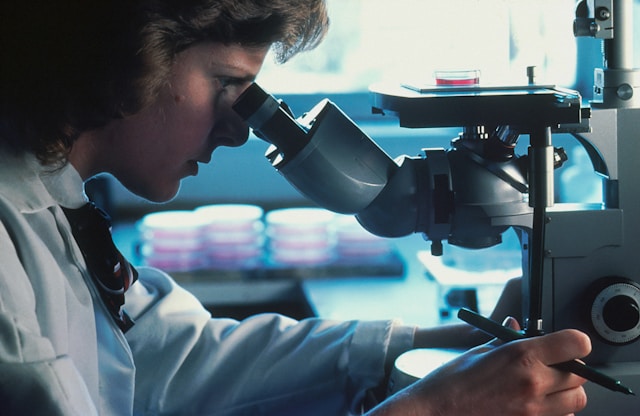
For many years, colon cancer was predominantly seen as a disease affecting individuals over the age of 50. Routine screenings typically began at that age, and it was generally assumed that younger people were not at risk. However, recent studies and medical observations have called this belief into question. There has been an alarming rise in cases among individuals under 50, a trend that has raised concern within the healthcare community. Not only is the disease becoming more prevalent in younger adults, but it is often diagnosed at a later stage due to early symptoms being overlooked or misinterpreted.
While the exact reasons for this increase are still being explored, factors such as lifestyle, diet, genetics, and environmental exposures are believed to contribute. One of the most concerning aspects of colon cancer is its ability to remain undetected in its early stages. By the time symptoms are noticeable, the cancer may have advanced considerably. This makes it essential to understand and recognize the subtle or "silent" signs. New York gastroenterology specialists are actively advancing efforts to raise awareness and enhance early detection, recognizing that identifying the subtle signs of colon cancer early can lead to significantly better outcomes.
According to recent data from the American Cancer Society, the rate of colon cancer in adults under 50 has been increasing by approximately 1-2% each year since the mid-1990s. More alarmingly, it’s not just the number of cases that’s going up - it’s also the severity. Younger patients are more likely to be diagnosed at advanced stages of the disease. This is partly because colon cancer is not usually top-of-mind for people in their 20s, 30s, or 40s, nor for their healthcare providers.
The shift has prompted organizations to revise their screening guidelines. The U.S. Preventive Services Task Force now recommends starting routine colorectal cancer screening at age 45 instead of 50. Yet even with earlier screening, awareness remains the first line of defense. Knowing what to look for could mean the difference between catching cancer in its early, treatable stages and facing a much more serious diagnosis.
One of the most easily overlooked symptoms of colon cancer is persistent fatigue. Unlike the tiredness you feel after a long workday or a poor night’s sleep, this fatigue is often unexplained and doesn’t improve with rest. It’s the kind of deep, dragging exhaustion that starts to interfere with daily life. In colon cancer, fatigue can result from internal blood loss, often microscopic and unnoticed, that leads to anemia. Over time, the lack of red blood cells carrying oxygen throughout your body can make you feel constantly weak or short of breath.
What makes this symptom tricky is that fatigue is common and can be caused by dozens of other factors, from stress and poor diet to thyroid issues. But when persistent fatigue is paired with other subtle symptoms, or has no obvious cause, it warrants a closer look.
Weight fluctuations happen for a variety of reasons, but sudden or unexplained weight loss should never be brushed aside. In cases of colon cancer, this symptom might develop because the tumor is interfering with your body’s ability to absorb nutrients or because the cancer itself is changing your metabolism.
People often dismiss this sign as a positive side effect - especially if they’ve been trying to lose weight. But weight loss that occurs without dietary changes, increased exercise, or another identifiable reason is a red flag that should be taken seriously. It can signal a host of other potential illnesses.
Perhaps one of the most telling signs is a noticeable and persistent change in bowel habits. These changes can take several forms: more frequent trips to the bathroom, chronic constipation, diarrhea that lasts more than a few days, or a general feeling that your bowel isn’t emptying completely. It’s not uncommon for people to chalk up these changes to stress, food sensitivities, or minor infections. But when these symptoms linger for more than a couple of weeks or recur regularly, it’s time to speak with a doctor.
Tumors can partially block the colon, creating intermittent constipation or causing narrow stools. Alternatively, irritation in the colon may cause diarrhea. If the tumor is low in the rectum, it may give a sensation of incomplete evacuation even after a bowel movement. These are nuances that only emerge over time, but they can be significant.

Blood in the stool is perhaps the most overt and alarming symptom, yet even this can be overlooked or misunderstood. Bright red blood might indicate bleeding from the lower colon or rectum, while darker blood could be coming from higher up in the digestive tract. Many people dismiss blood in the stool as hemorrhoids, especially if they’re younger, but it’s crucial to investigate further if the bleeding continues or is accompanied by other symptoms.
It's also important to recognize that not all bleeding is visible. Some signs of blood loss are microscopic and can only be detected through stool tests ordered by a physician. This is another reason why regular checkups are vital, especially for individuals with a family history of colorectal cancer.
Colon cancer can sometimes cause vague but persistent abdominal discomfort. This may include cramps, bloating, gas pain, or a sensation of fullness that doesn’t go away after eating. People often attribute these signs to common digestive issues like irritable bowel syndrome (IBS), lactose intolerance, or even just a heavy meal. But if discomfort is recurrent, and especially if it worsens over time, it may be signaling something more serious.
Bloating that doesn’t resolve, or that increases in intensity, can be due to a tumor causing a partial obstruction in the colon. This not only disrupts digestion but may also cause painful swelling in the abdomen. Recognizing the pattern and duration of these symptoms is essential to catching the disease early.
Genetics play a substantial role in colorectal cancer risk. People with a family history - particularly of a first-degree relative (parent, sibling) - should be even more vigilant. Conditions like Lynch syndrome or familial adenomatous polyposis (FAP) significantly elevate lifetime cancer risk and warrant earlier and more frequent screening.
However, lifestyle factors also carry weight. A diet low in fiber and high in processed or red meats, lack of physical activity, smoking, and heavy alcohol use have all been linked to an increased risk of colon cancer. While these factors don't cause the disease directly, they may contribute to an environment in which cancer can more easily develop.
One of the most critical messages for people under 50 is the importance of advocating for your own health. Too often, younger adults experiencing symptoms are reassured by physicians that they are “too young” for colon cancer. While it’s true that the disease is more common in older individuals, the rising rates in younger populations are changing that narrative. If you’re experiencing persistent or unexplained symptoms, push for testing - whether it’s a stool test, imaging, or a colonoscopy.
Colon cancer is highly treatable when detected early. The five-year survival rate for localized colorectal cancer is over 90%, but this drops significantly once the cancer spreads. That’s why early detection is not just important - it’s life-saving.
Colon cancer may be silent in its early stages, but it does speak, often in whispers, through subtle changes in your body. Fatigue, weight loss, bowel irregularities, bleeding, and discomfort should never be dismissed outright, particularly if they persist or defy explanation. If you’re under 50, be aware that you are not immune to this disease. Learn the signs, listen to your body, and don’t be afraid to seek answers. Awareness, vigilance, and timely action are your best defenses against a disease that increasingly affects people long before they ever expect it.